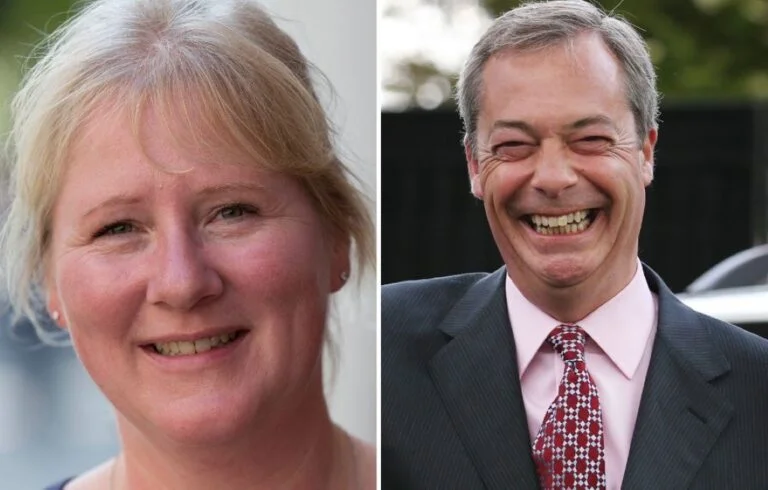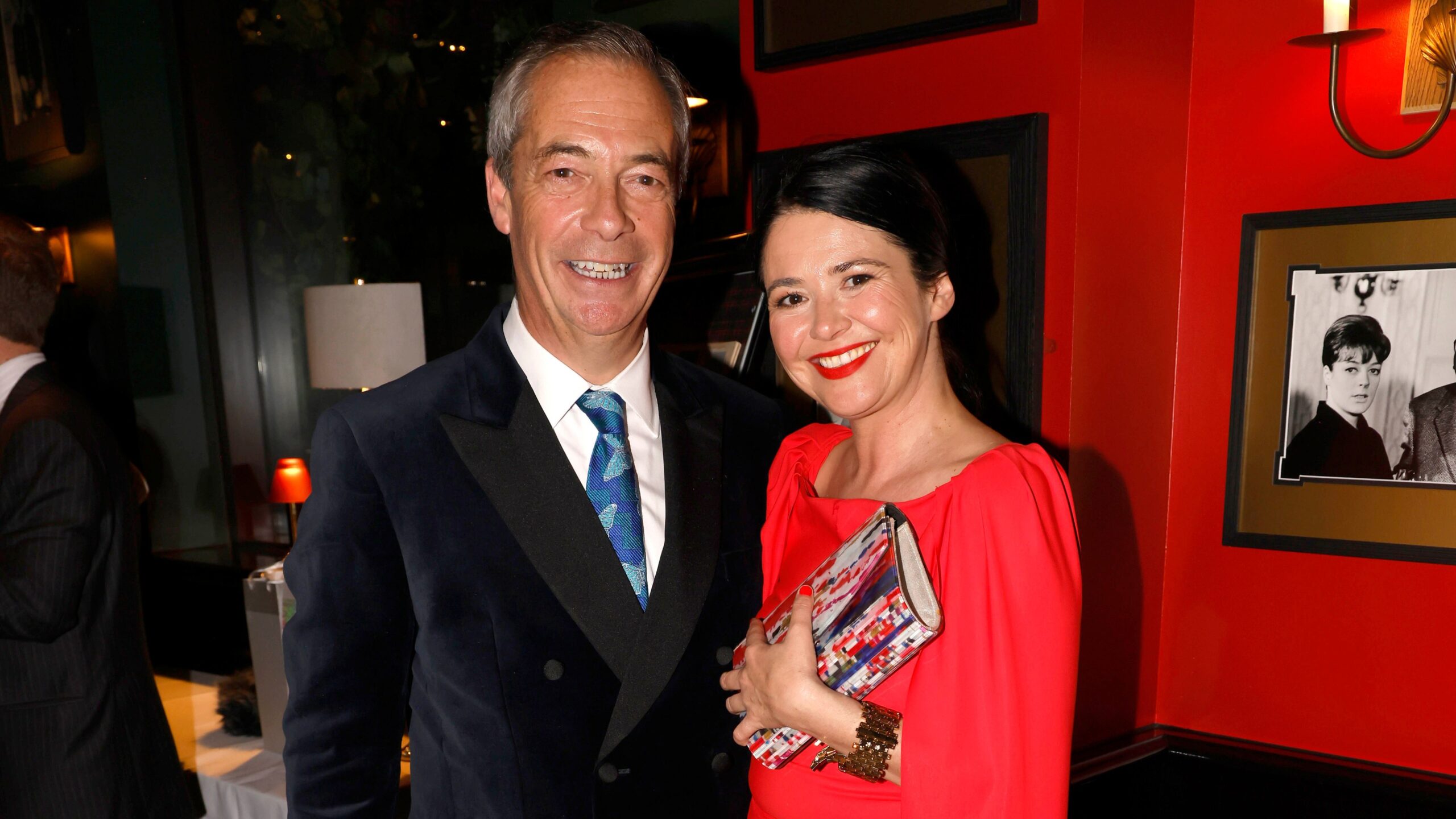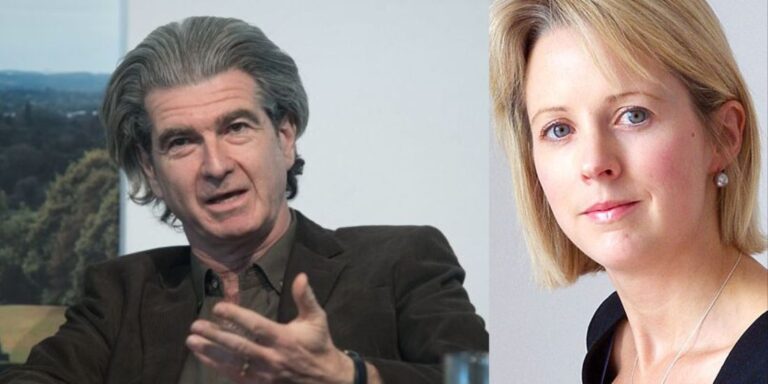Introduction
Gráinne Hayes is a name that may not spark immediate recognition, but her association with one of Britain’s most polarizing political figures, Nigel Farage, places her in a unique position in British public life. While Farage is known for his political provocations and media presence, Gráinne Hayes has quietly lived a life away from the limelight. As his first wife, her story offers an intimate lens into a rarely seen side of the man often in the headlines. But beyond her role in a public figure’s life, Gráinne Hayes represents a compelling figure in her own right—an Irish-born nurse who maintained her grace and privacy amidst the chaos of political exposure.
This article delves into the life of Gráinne Hayes, from her early beginnings in Ireland to her marriage to Nigel Farage, their life together, and her decision to retreat from public view following their divorce. For readers curious about the woman behind the headlines, this in-depth profile offers clarity, respect, and insight.
Early Life and Professional Background
Gráinne Hayes was born and raised in Ireland, where she trained and worked as a nurse. Her early life was shaped by values rooted in care, compassion, and service—traits that would define her not only in her professional life but in her personal journey as well.
Little is publicly documented about her upbringing, schooling, or family, and that’s largely by design. Even during her years married to one of Britain’s most controversial political figures, Gráinne Hayes consistently avoided media attention. Her move to the UK was likely driven by career opportunities in nursing, a profession that often requires cross-border flexibility and dedication.
In an era where public personas are constantly curated online, Gráinne’s decision to maintain distance from the media makes her all the more intriguing—and respected.
How Gráinne Hayes Met Nigel Farage
The meeting between Gráinne Hayes and Nigel Farage wasn’t one of glitz, politics, or social circles. In 1985, Nigel Farage suffered a near-fatal accident after being hit by a car in Orpington, Kent. The collision left him with serious injuries to his head and left leg, requiring extensive hospitalization.
It was during this challenging time that Gráinne Hayes, working as a nurse, came into his life—not in a public or professional spotlight, but at his bedside, in a quiet hospital ward. What started as a nurse-patient relationship gradually developed into something deeper. Their bond grew stronger during Farage’s recovery, and within three years, the two were married in 1988.
The foundation of their relationship—born out of care, vulnerability, and healing—offers a refreshing contrast to the typical political spouse narratives centered around ambition or publicity.
Life as Nigel Farage’s Wife
During their marriage, Gráinne Hayes remained firmly rooted in her nursing profession. While her husband was transitioning from a career in the City of London to a more politically driven path through the UK Independence Party (UKIP), Gráinne chose a path of stability and consistency, particularly for their growing family.
The couple had two children together: Samuel, born in 1989, and Thomas, born in 1991. As Farage’s profile began to rise, Hayes maintained a low public presence. She did not attend political rallies or media appearances and never sought the spotlight that often follows spouses of high-profile figures.
Even during the early years of Farage’s political journey, Gráinne Hayes served as the steady foundation for their family—raising children, managing a household, and continuing her professional commitments.
Strain, Separation, and Divorce
No marriage is immune to the strains of public life, and the relationship between Gráinne Hayes and Nigel Farage was no exception. As Farage became more involved in politics—especially with the rise of UKIP—his time at home decreased, and public scrutiny intensified.
Their marriage eventually came under pressure, and by the mid-1990s, the couple began to drift apart. The demands of political life and Farage’s growing ambition were reportedly significant factors in their separation. They formally divorced in 1997 after nine years of marriage.
Throughout their separation and eventual divorce, Gráinne Hayes remained characteristically private. There were no tell-all interviews, no public accusations, and no attempts to capitalize on her relationship with Farage. Instead, she continued to focus on her personal and professional life, upholding the same dignity she had always demonstrated.
Life After Divorce
Post-divorce, Gráinne Hayes completely removed herself from the public sphere. While Farage’s political journey accelerated—leading UKIP, representing Britain in the European Parliament, and becoming a major force behind Brexit—Hayes chose silence.
This deliberate absence from public discourse is a defining element of her story. In a culture where media appearances and public opinion often shape identity, Gráinne Hayes embodies the opposite. She remains a mystery to many, but her values are made clear through her actions: privacy, independence, and a refusal to be defined by someone else’s fame.
There is little public record of whether she remarried, continued working as a nurse, or relocated. What is evident, however, is her conscious decision to live life on her own terms—free from public judgment or political associations.
A Contrast to Farage’s Later Relationships
After divorcing Gráinne Hayes, Nigel Farage married Kirsten Mehr, a German-born bond broker, in 1999. The couple had two daughters and were married for over two decades before separating. Unlike Hayes, Mehr found herself occasionally in the media spotlight due to Farage’s political evolution.
Yet even amidst the media’s scrutiny of Farage’s later relationships, Gráinne Hayes’s name rarely surfaced—another testament to how firmly she distanced herself from her past marriage and the political frenzy that surrounded it.
Public Perception of Gráinne Hayes
In the rare moments her name is mentioned in the press, Gráinne Hayes is consistently described as “private,” “discreet,” and “low-profile.” These descriptors may seem simple, but they reveal something powerful. While others tied to political figures often find themselves caught up in controversy or media battles, Hayes has successfully navigated her life without such turbulence.
Her refusal to speak publicly about Nigel Farage, their marriage, or their separation is not just admirable—it’s rare. In doing so, she has built a quiet legacy, one that values integrity over attention.

Frequently Asked Questions (FAQs)
Who is Gráinne Hayes?
Gráinne Hayes is an Irish-born nurse known for being the first wife of British politician Nigel Farage. She maintained a private life during and after their marriage.
How did Gráinne Hayes meet Nigel Farage?
She met Nigel Farage in 1985 while he was recovering in hospital from a serious car accident. Gráinne was his nurse during that time.
When did Gráinne Hayes and Nigel Farage get married?
The couple married in 1988, three years after they met in hospital.
How many children did they have together?
Gráinne Hayes and Nigel Farage had two sons—Samuel, born in 1989, and Thomas, born in 1991.
Why did Gráinne Hayes and Nigel Farage separate?
Though exact reasons were kept private, it’s believed that the pressures of Farage’s political life contributed to the strain in their marriage. They divorced in 1997.
What happened to Gráinne Hayes after the divorce?
Gráinne Hayes stepped away from public life entirely. She has not given interviews or made public statements and continues to live privately.
Is Gráinne Hayes still in contact with Nigel Farage?
There is no public information suggesting current contact. Given her preference for privacy, no details have emerged on their post-divorce relationship.
Conclusion
Gráinne Hayes’s life is a testament to the strength of quiet dignity. In an age of oversharing, scandal, and public spectacle, she remains a figure of privacy, professionalism, and personal resilience. Her story stands not as a footnote to Nigel Farage’s legacy, but as a portrait of a woman who chose to define herself on her own terms.
While she may never be a household name, Gráinne Hayes has earned something far more enduring—respect. In doing so, she offers a lesson in grace: that sometimes the most powerful presence is one that chooses not to be seen.






